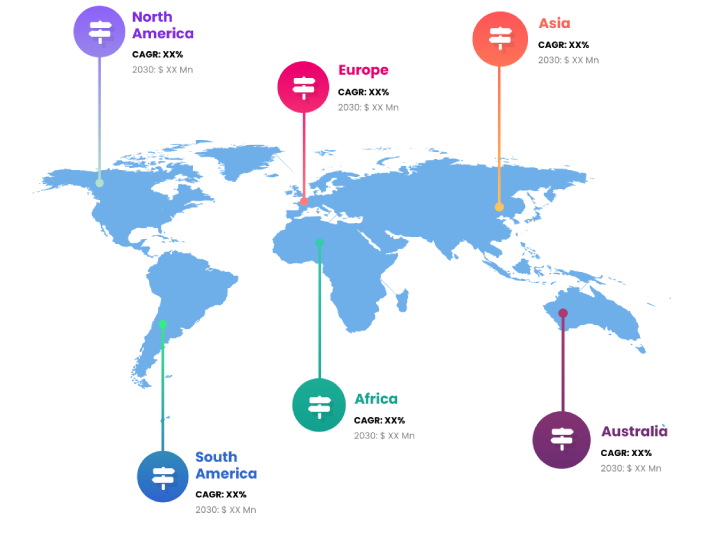Productivity needs to be a top priority for retail organisations if they want to maintain their position as industry leaders. merchants can increase their profitability and improve their business procedures with the use of Artificial Intelligence (AI), which assists merchants in automating their operations. Enhancing retail operations is the topic of this paper, which details many options, including automated inventory management, demand forecasting, customer help, predictive analytics, and more.
The adoption of multichannel or omnichannel retailing strategies, the desire to enhance end-user experience and improve productivity are some of the factors that are driving the growth of the artificial intelligence (AI) in retail market. Another aspect that is driving the market is the growing knowledge about AI and big data and analytics. However, the high cost of procurement, a lack of infrastructure, and the influence of COVID-19 may all work together to impede the expansion of this sector to some degree. The growing number of smartphones and the increased usage of AI-powered voice-enabled devices are likely to generate growth prospects for the companies now competing in this industry. However, worries over the privacy and identity of individuals, as well as hesitation towards the use of AI among smaller providers, present significant barriers to the expansion of the business. A notable trend in the artificial intelligence (AI) market in retail is the increasing focus on blockchain technology as well as the implementation of 5G technology.
Because of the development of AI, the retail sector is getting ready to undergo a significant transformation in the years to come. This cutting-edge technology has the ability to revolutionise the business world, from fundamental cost factors to consumer participation in buying. Because AI and e-commerce go hand in hand, and because the latest coronavirus outbreak is driving up growth rates for e-commerce, vendors absolutely need to start using AI as soon as they possibly can. The incorporation of AI requires careful planning that takes both technological advancements and business strategies into consideration.
The potential of AI to take over laborious, repetitive jobs and provide assistance to customers is the primary benefit that AI brings to the retail industry. The use of artificial intelligence in retail leads to the same benefits, which are comparable to the enhanced efficiency that AI has brought to the workplace. Robots can aid with order selection and packing, while AI-driven logistics can help establish the most efficient delivery routes. This frees up human workers to concentrate on other crucial responsibilities. Artificial intelligence (AI) is rapidly becoming a disruptive force in many different areas, including the healthcare sector, the automobile industry, and the industrial sector. Because Gen Z members have such a strong propensity for online purchasing, artificial intelligence has become an essential tool for businesses in the retail sector as Gen Z takes over as the major consumer base. Retailers are modernising the checkout process by eliminating the need for cashiers and replacing it with technology that relies on computer vision and big data analytics.
Because of its exceptionally high level of effectiveness in providing customer support, AI-powered chatbot assistance is quickly acquiring widespread favour across the retail sector. Customers can receive dedicated and personalised responses from a chatbot, which helps to improve their overall experience. One example is the smart appliance manufacturer upliance.ai, which began incorporating ChatGPT into its offerings in May of 2023. The intelligent kitchen aid known as DelishUp made cooking much easier by automating the process. Additionally, the business intends to develop goods in the home appliances category, which will enable them to establish a significant foothold in Artificial Intelligence inside the retail market.
Despite the fact that well-established retail brands are continually investing in innovative technologies to improve consumer engagement, the expansion of the market is expected to be constrained by a number of distinct causes. A number of large businesses and merchants operating on a global scale, such as Walmart, have already integrated artificial intelligence technology to manage online portals and in-store operations. On the other hand, in today's world, new start-ups as well as small and medium-sized businesses encounter difficulties in adopting new technologies due to a lack of infrastructure and technical skills. According to the insights provided by IBM's cloud-data service, 37% of respondents claimed that a lack of AI competence was a hurdle in the process of using such technology. The high cost of implementation that is associated with artificial intelligence in retail solutions is a key hurdle for small retailers, which in turn limits the application of AI in retail solutions. It is anticipated that the presence of these characteristics will function as a barrier to the spread of artificial intelligence in the retail business.

Report Coverage
Global Artificial Intelligence in Retail research report categorizes the market for global based on various segments and regions, forecasts revenue growth, and analyzes trends in each submarket. Global Artificial Intelligence in Retail report analyses the key growth drivers, opportunities, and challenges influencing the global market. Recent market developments and Artificial Intelligence in Retail competitive strategies such as expansion, product launch and development, partnership, merger, and acquisition have been included to draw the competitive landscape in the market. The report strategically identifies and profiles the key Artificial Intelligence in Retail market players and analyses their core competencies in each global market sub-segments.
| REPORT ATTRIBUTES | DETAILS |
|---|---|
| Study Period | 2017-2030 |
| Base Year | 2022 |
| Forecast Period | 2022-2030 |
| Historical Period | 2017-2021 |
| Unit | Value (USD Billion) |
| Key Companies Profiled | Amazon.com, Inc. (U.S.), Google LLC (U.S.), Intel Corporation (U.S.), Microsoft Corporation (U.S.), IBM Corporation (U.S.), Nvidia Corporation (U.S.), Oracle Corporation (U.S.), SAP SE (Germany), Salesforce.com, Inc. (U.S.), and BloomReach, Inc. (U.S.). |
| Segments Covered | • By Product |
| Customization Scope | Free report customization (equivalent to up to 3 analyst working days) with purchase. Addition or alteration to country, regional & segment scope |
Key Points Covered in the Report
- Market Revenue of Artificial Intelligence in Retail Market from 2021 to 2030.
- Market Forecast for Artificial Intelligence in Retail Market from 2021 to 2030.
- Regional Market Share and Revenue from 2021 to 2030.
- Country Market share within region from 2021 to 2030.
- Key Type and Application Revenue and forecast.
- Company Market Share Analysis, Artificial Intelligence in Retail competitive scenario, ranking, and detailed company
profiles. - Market driver, restraints, and detailed COVID-19 impact on Artificial Intelligence in Retail
Market
Competitive Environment:
The research provides an accurate study of the major organisations and companies operating in the global Artificial Intelligence in Retail market, along with a comparative evaluation based on their product portfolios, corporate summaries, geographic reach, business plans, Artificial Intelligence in Retail market shares in specific segments, and SWOT analyses. A detailed analysis of the firms' recent news and developments, such as product development, inventions, joint ventures, partnerships, mergers and acquisitions, strategic alliances, and other activities, is also included in the study. This makes it possible to assess the level of market competition as a whole.
List of Major Market Participants
Amazon.com, Inc. (U.S.), Google LLC (U.S.), Intel Corporation (U.S.), Microsoft Corporation (U.S.), IBM Corporation (U.S.), Nvidia Corporation (U.S.), Oracle Corporation (U.S.), SAP SE (Germany), Salesforce.com, Inc. (U.S.), and BloomReach, Inc. (U.S.).
Primary Target Market
- Market Players of Artificial Intelligence in Retail
- Investors
- End-users
- Government Authorities
- Consulting And Research Firm
- Venture capitalists
- Third-party knowledge providers
- Value-Added Resellers (VARs)
Market Segment:
This study forecasts global, regional, and country revenue from 2019 to 2030. INFINITIVE DATA EXPERT has segmented the global Artificial Intelligence in Retail market based on the below-mentioned segments:
Global Artificial Intelligence in Retail Market, By Type
Online
Offline
Global Artificial Intelligence in Retail market, By Application
Predictive Analytics
In-Store Visual Monitoring and Surveillance
Customer Relationship Management (CRM)
Market Forecasting
Inventory Management
Others (Payment and Pricing Analytics, Real-Time Product Targeting, etc.)
Global Artificial Intelligence in Retail Market, By Technology
Computer Vision
Machine Learning
Natural Language Processing
Others (Speech Recognition, Deep Learning, and Robotics)
Global Artificial Intelligence in Retail market, Regional Analysis
- Europe: Germany, Uk, France, Italy, Spain, Russia, Rest of Europe
- The Asia Pacific: China,Japan,India,South Korea,Australia,Rest of Asia Pacific
- South America: Brazil, Argentina, Rest of South America
- Middle East & Africa: UAE, Saudi Arabia, Qatar, South Africa, Rest of Middle East & Africa
You will get in-depth and extensive artificial intelligence in retail market market research and competitor analysis for your business to help you develop more profound insights into the artificial intelligence in retail market Market.
Through INFINITIVE Data Expert is a professional Market Research services, I will identify the artificial intelligence in retail market market size, demand & opportunities, growth rate, and target audience with a comprehensive analysis of your competitors.



